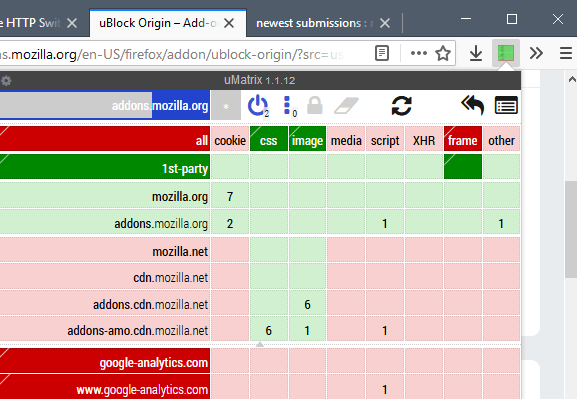GerardThomas
New Member
Hello everyone I'm new to Linux and I'm wondering if someone could inform me as to why I don't need to have virus protection in Linux? I do use the internet for banking and such.
Thanks
Thanks
...if someone could inform me as to why I don't need to have virus protection in Linux?
I like uMatrix but I believe I read something yesterday alluding to development of uMatrix being halted.If one wants a prophylactic for their browser, µMatrix is basically an old-school firewall except it only works for the browser. There's a learning curve, but it negates the need for myriad browser security plugins. It's from the same guy that does µBlock Origin. It's available for all the major browsers.
... development of uMatrix being halted.
That would seriously suck. Then again, it's fairly feature-complete. Just ensuring that it works with new versions of the browser(s) might be the entirety of labor needed. I don't have tons of time, but I'd possibly throw some time at helping to keep that updated. There's usually enough lead time with the dev browser versions, so it might not be too pressing.

That's what TAILS was created for.I do use the internet for banking and such.
If it was a CD, you could put Puppy Linux on it, or a DVD, most any Linux of your choice other than openSUSE which does not provide for a Live scenario. Being read-only, nobody or nothing could write any nasties to it, and any data and passwords you entered into it while in session would vanish when you ejected or rebooted.
Yah know there is one distro that gets forgotten thats older than Puppy that does the same job Knoppix
What's the deal with that URL?
